
Tunis is the capital and largest city of Tunisia. The greater metropolitan area of Tunis, often referred to as "Grand Tunis", has about 2,700,000 inhabitants. As of 2020, it is the third-largest city in the Maghreb region and the eleventh-largest in the Arab world.

Tunisian culture is a product of more than three thousand years of history and an important multi-ethnic influx. Ancient Tunisia was a major civilization crossing through history; different cultures, civilizations and multiple successive dynasties contributed to the culture of the country over centuries with varying degrees of influence. Among these cultures were the Carthaginian – their native civilization, Roman, Vandal, Jewish, Christian, Arab, Islamic, Turkish, and French, in addition to native Amazigh. This unique mixture of cultures made Tunisia, with its strategic geographical location in the Mediterranean, the core of several civilizations of Mare Nostrum.

Lesbian, gay, bisexual and transgender (LGBT) people in Tunisia face legal challenges not experienced by non-LGBT residents. Both male and female same-sex sexual activity are illegal. According to the United States Department of State's 2018 report on human rights in Tunisia, "authorities occasionally use [the anti-sodomy law] to detain and question persons about their sexual activities and orientation, reportedly at times based on appearance alone."
Moufida Tlatli was a Tunisian film director, screenwriter, and editor. She is noted for her breakthrough film The Silences of the Palace in 1994, which won several international awards. She went on to direct two more films: The Season of Men (2000) and Nadia and Sarra (2004).
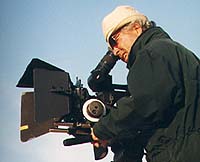
The cinema of Tunisia began in 1896, when the Lumière brothers began showing animated films in the streets of Tunis.

The Season of Men is a 2000 French-Tunisian drama film directed by Moufida Tlatli. It was screened in the Un Certain Regard section at the 2000 Cannes Film Festival. The title of the film, The Season of Men, refers to the one month out of the year that the women's husbands come to the Island of Djerba.

Raja Amari is a Tunisian film director and script writer. She is best known for her films Satin Rouge/Red Satin (2002), and Dowaha/Les Secrets/Buried Secrets (2009), both of which have earned international awards and recognition.

Emel Mathlouthi also known as Emel, born 11 January 1982), is a Tunisian singer-songwriter, musician, arranger and producer. She rose to fame with her protest song "Kelmti Horra", which became an anthem for the Tunisian revolution and the Arab spring. Her first studio album, also titled Kelmti Horra, was released worldwide in 2012 to critical acclaim: she married Arabic roots with western flavours. Her second album, Ensen, was released in 2017, blending more electronica to classical music. On Everywhere We Looked Was Burning in 2019, she sang all the lyrics in English.
Néjia Ben Mabrouk is a Tunisian screenwriter and director, known for her work on the award-winning film Sama and on the documentary The Gulf War... What Next?.
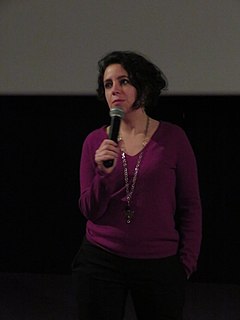
Leyla Bouzid, is a Tunisian screenwriter and film director.
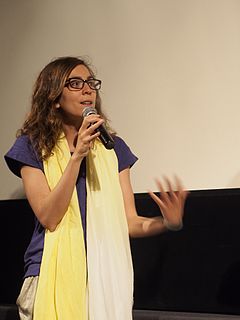
Hind Meddeb is a French-Tunisian journalist and documentary film director. Based in Paris, she works both in Europe, North Africa and the Middle East. In her films and journalistic writing, she has presented social protests of young people and their culture in Morocco, Tunisia and Egypt. Documenting their social situation and political expressions in the context of the Arab revolutions, she has focussed on rap music or other kinds of counter-culture and protest in these countries.
Anissa Daoud is a Franco-Tunisian actress, author and producer. Living between Paris and Tunis, she is part of the art collective Artists Producers Associates (APA).
Nada Mezni Hafaiedh is a Tunisian film director. Born on May 6, 1984 in Saudi Arabia, she was from an early aged exposed to different cultures due to her diplomatic parents. Saudi Arabia, USA, France, Canada represents a pool of developments of her passion for cinema.
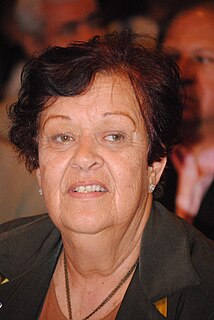
Selma Baccar or Salma Baccar is a Tunisian filmmaker, producer and politician. She is considered the first woman to make a featured length film in Tunis. Baccar is known for creating manifestos through her films, centered around women's rights in Tunisia.
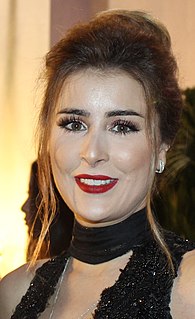
Aïcha Ben Ahmed is a Tunisian actress who has performed in film, on the stage and on television. She became widely known in Tunisia in 2012 when she appeared in the series Pour les beaux yeux de Catherine. More recently, she has appeared in several Egyptian films including Saint Augustin, La cellule and Zizou. For her appearance as Hind in Narcisse, Aziz Rouhou, she won the award for best actress at the 2016 Al Hoceïma Film Festival in Morocco.

Kaouther Ben Hania is a Tunisian film director. Beauty and the Dogs (2017), her best-known film, was selected as the Tunisian entry for the Best Foreign Language Film at the 91st Academy Awards. Her 2020 film The Man Who Sold His Skin was nominated for the Best International Feature Film at the 93rd Academy Awards.

Emna Mizouni is a Tunisian online and human rights activist, free-lance journalist, communications expert and business executive. After successfully helping to prepare RightsCon Tunis, in July 2019, Access Now, the international non-profit human rights group intent on an open Internet, announced her appointment to serve in their global board of directors. In March 2013, Mizouni co-founded Carthagina, an initiative designed to create interest in Tunisia's cultural heritage at home and abroad. In August 2019, at the Wikimedia Conference in Stockholm, she was honoured as Wikimedian of the Year 2019 as a result of the leading role she has played in the development of Arab and African communities as well as her success in promoting the history and culture of Tunisia.
Hinde Boujemaa is a half-Tunisian, half-Belgian film director.

Dorra Ibrahim Zarrouk is a Tunisian actress living in Egypt.
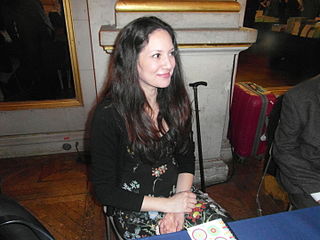
Nidhal Guiga is a Tunisian actress, writer, and film director.














